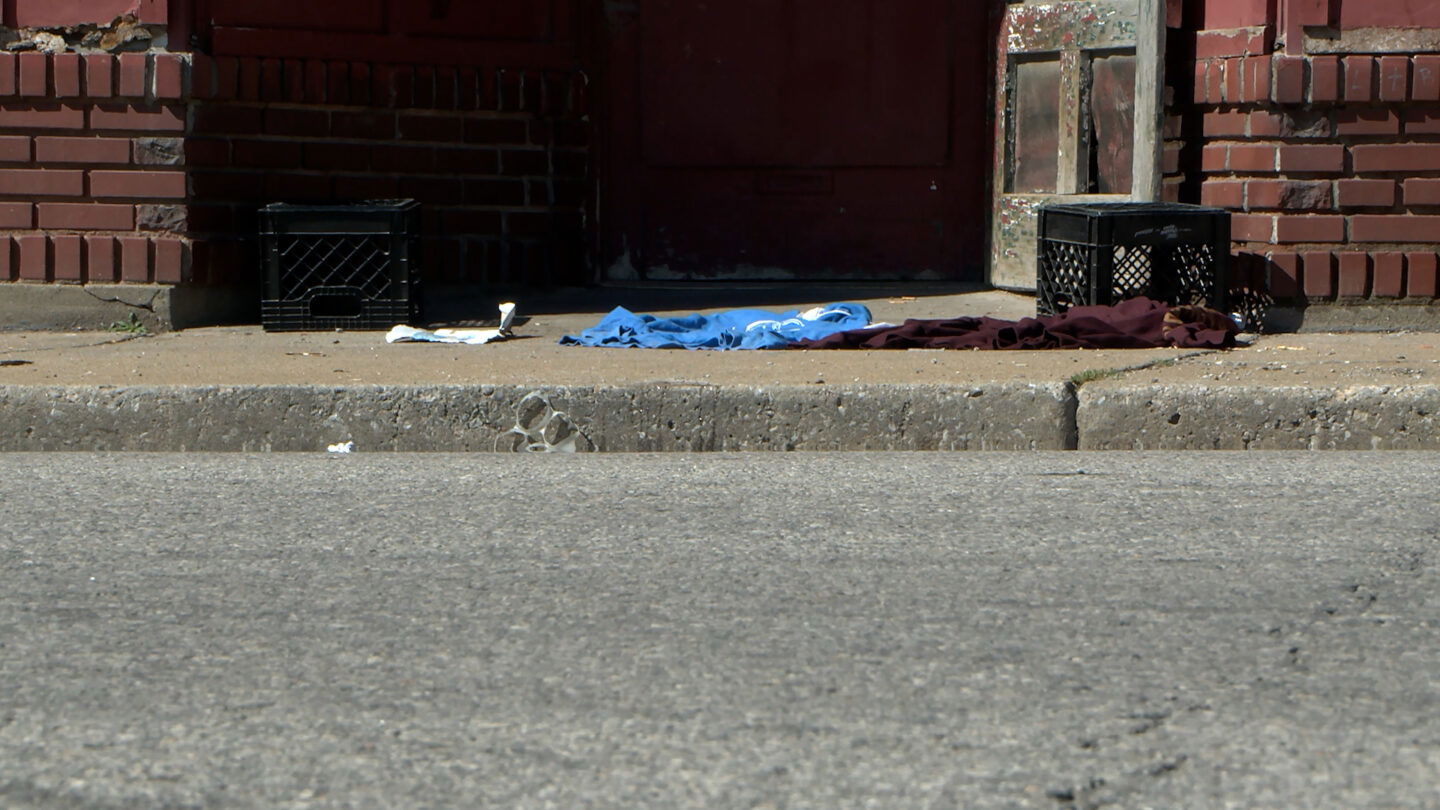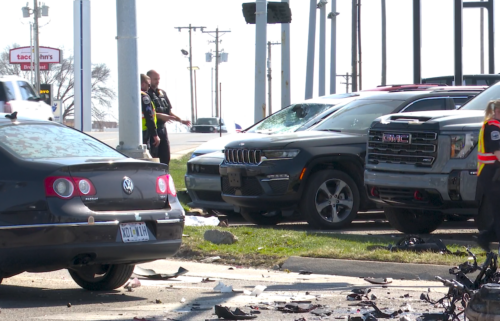‘We can’t arrest our way out’: SJPD using outreach to address homelessness

By Chris Fortune
With the local homeless community growing, the St. Joseph Police Department is drawing inspiration from other cities to address issues here.
Officials are looking to a program utilized by the Sarasota, Florida, Police Department to address issues with homelessness, focusing on a segment of the community involved in nuisance crimes. Police Chief Paul Luster said there are several issues officers are targeting.
“The drinking in public and just the loitering, and that’s just very visible to the public, and that causes concerns, especially for businesses,” he said.
The number of people in the homeless community in Buchanan, Andrew and DeKalb counties increased from 148 in 2022 to 175 in 2023, according to the annual Continuum of Care Count. With numbers growing, police are taking a community outreach approach to connect those who are homeless.
“We can’t arrest our way out of this issue,” Luster said. “And really, very little of it is a law enforcement issue when you look at it very holistically.”
Homelessness is not an issue exclusive to the city of St. Joseph. The U.S. Department of Housing and Urban Development gave its 2023 Annual Homelessness Report to Congress in December which showed 70,000 more people experienced homelessness in the country from 2022 to 2023, a 12% increase.
“What we did was we just looked at other communities that were seeing some success in how they dealt with their homeless population,” Luster said. “I assigned an officer, Officer Cameron Shoemaker, to be the liaison as we deal with this population.”
Shoemaker and his commander, Dan Sweiger, went to Sarasota for a few days to become familiar with that police department’s homeless outreach team. Sarasota’s program focuses on educating their homeless community about the local services available to them, then encourages them to reach out to case managers and utilizes enforcement as a last resort if an individual commits a crime after the education and encouragement steps.
Luster said he believes Shoemaker has the temperament and personality to succeed in the homeless outreach role.
“He approaches them as human beings and reaches out to see what he can do to help,” he said. “He’s newer in this role, but he’s building his network of resources within the community.”
Shoemaker surveys homeless encampments and checks on the well-being of members of the community while on patrol.
“Sometimes I actually have some of their caseworkers come out with me, and that way they can meet them face-to-face, and then that also gives them somebody that they know in that area that they feel comfortable going and making contact with later,” Shoemaker said.
While some in the homeless community don’t want Shoemaker around, many of his interactions go well, he said.
“It’s great that I do have a lot of people that now feel comfortable dealing with me specifically,” he said. “They’ve trusted me, and it kind of gives me a better understanding of what got them here and where they came from. And it gives me a better chance of helping them in the long run or giving them the help they need.”
A St. Joseph woman who is currently homeless said more resources are needed. Every day brings the challenge of finding warmth, water and food, she said.
“We can come here (to Community Missions) and get food,” Megan Harman-Miller said. “And other than that, there’s really nothing else Downtown, but the (Open Door Food Kitchen). That’s about it, or Salvation Army.”
Harman-Miller said it’s difficult to find a place to sleep each night when the police ask her to move. But she said Shoemaker makes it easier with his understanding approach.
“He’s just a good officer,” she said. “He don’t judge none of us for whatever addictions we are all going through.”
A man who has experienced homelessness for five years said a big need goes beyond material items.
“That’s the biggest struggle, I believe, is medication for our mental state, but it’s hard,” Community Missions resident Clarence Roettgen said. “We get many socks, we get many blankets, but it’s the mental state.”
Roettgen said the opportunity to learn life skills, such as filling out a job application, also would help.
“A lot of us out here don’t know how to do that, and the fear of them trying to do that, they get scared because (they) don’t know how to do it right,” he said.
Helping someone in the homeless community can sometimes start with a simple conversation.
“I mean, just talk to him or her, or whatever, and say, ‘All right, what is your problem? How can we help?’”
Luster said addressing issues within the homeless population begins with building relationships and trust.
“Any time you have those relationships in place, that makes it easier for when that person decides they do want that help, or if there’s help for them, they have that relationship with Officer Shoemaker,” he said. “It’s not just, you know, an officer responding to a call. There’s that personal relationship, and I think the relationships are what make some of the difference.
St. Joseph police are establishing a timeline to implement the new program fully, and officials realize adjustments may need to be made to fit this community.
“Just because it works somewhere else doesn’t mean it would work in St. Joe,” Luster said. “So we want to make sure that we’re doing our due diligence. And in setting that program, any program we do, we want to make sure we’re setting that up for long-term success here.”



